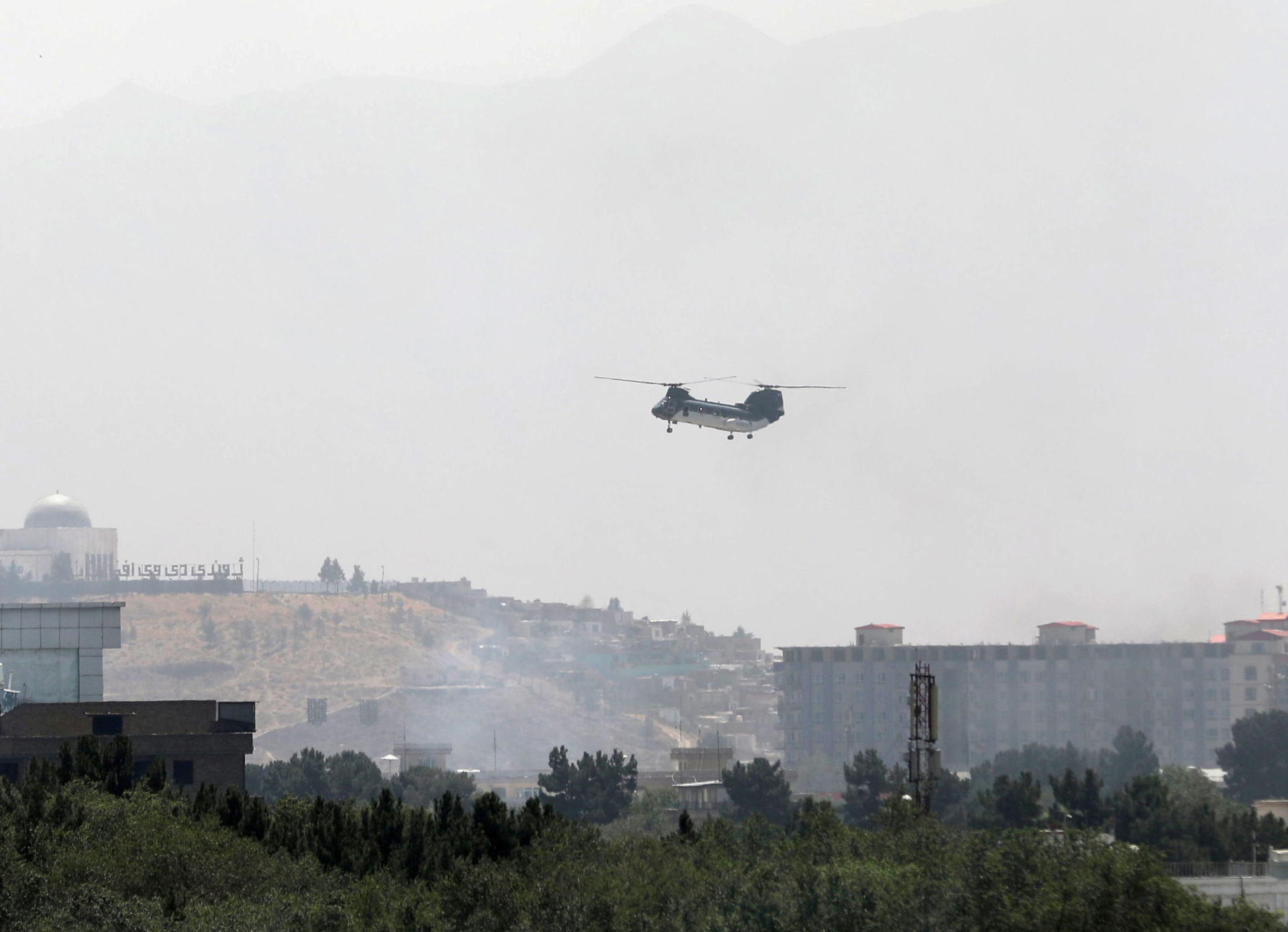Soul-searching in Taiwan after Afghan fiasco, but is it just ‘immature bedwetting’?
“We can’t rely on the U.S.,” said a senior official from Taiwan’s Ministry of Foreign Affairs on condition of anonymity. Despite the U.S. and Taiwanese governments publicly resisting the comparison — and many analysts poo-pooing it — the withdrawal of international troops from Afghanistan and its dramatic aftermath has fueled fresh doubts in Taipei about American security guarantees.

Taiwan will not stand by and “merely rely on others for its protection,” Taiwanese president Tsai Ing-wen (蔡英文 Cài Yīngwén) said on Wednesday, in reference to Afghanistan’s fall to the Taliban amid the retreat of U.S. forces out of the country. “Taiwan’s only choice,” Tsai said, in her first public remarks about the situation in Afghanistan, “is to make ourselves stronger…[and] more determined to defend ourselves.”
Tsai’s comments come as dramatic footage of the Taliban’s sweep to power in Afghanistan this week has sparked an intense public debate in Taiwan, which — not unlike Afghanistan before the return of Taliban rule — relies on U.S. security commitments for its existence as an autonomous democracy. China, which claims Taiwan as its own, has vowed to unify the self-governed island with the Chinese mainland, by force if necessary. To that end, Chinese military aircraft in 2020 flouted Taiwan’s air defense identification zone more times than in any year since 1996, according to a Taiwanese military-affiliated think tank — a pace that China will likely exceed this year. The near-daily incursions, including by fighter jets and nuclear-capable bombers, are a constant reminder of China’s intimidation of Taiwan.
In response to the growing threat that China poses to Taiwan, the U.S. State Department in April described its commitments to the island as “rock solid,” adding that the U.S. is able to “resist any resort to force or other forms of coercion that would jeopardize the security…of the people on Taiwan.” Asked whether the U.S. would abandon Taiwan as it did Afghanistan, White House National Security Advisor Jake Sullivan on Tuesday said that the U.S. commitment to Taiwan “remains as strong as it’s ever been.” Underscoring its role as Taiwan’s security guarantor, Washington on August 4 approved a $750 million deal for an array of advanced munitions for Taiwan.
But the scenes of chaos unfolding in Afghanistan — including images of U.S. military aircraft taking off from Kabul as desperate crowds tried to get on board — has invited comparisons to the U.S. evacuations out of Saigon in 1975, and left many in Taiwan wondering if the U.S. would also shrink from its role as Taiwan’s security underwriter, particularly if China were to actually attack or blockade the island. “The U.S. withdrawal from Afghanistan,” said Angelica Oung, a business reporter at the Taipei Times and a prominent social media commentator, “has inevitably triggered some hasty and immature bedwetting about what this means for Taiwan.”
Tsai and the island’s premier, Su Tseng-chang (蘇貞昌 Sū Zhēnchāng), have struck a defiant tone, saying that the takeaway from Afghanistan is that the Taiwanese, in Su’s words, “must guard this country and this land, and…not talk up the enemy’s prestige and talk down our resolve.” In comments attributed to Su by Reuters on Tuesday, Su dismissed comparisons between Taiwan and Afghanistan, saying that Taiwan would not crumble like Afghanistan in the event of an attack, nor would the island’s leadership flee. “We’d [like to] tell foreign forces who want to invade and grab Taiwan, don’t be deluded,” Reuters quoted Su as saying, referring to China.
Behind the scenes, however, a mood of angst is spreading inside the Tsai administration, as Taiwanese policymakers ponder the limits of Washington’s security pledges in Asia, said a senior official from Taiwan’s Ministry of Foreign Affairs, speaking on the condition of anonymity. “We can’t rely on the U.S.,” he said. Indeed, “the example of Afghanistan,” said Lee Yen-hsiu (李彥秀 Lǐ Yànxiù), the deputy secretary-general of Taiwan’s main opposition party, the Kuomintang, or KMT, speaking recently to Taiwan’s China Times newspaper (in Chinese), “tells us Taiwanese that we have to rely on ourselves.”
But Taiwan’s military is ill-prepared to defend the island, according to a former official of the island’s National Security Council (NSC). Taiwanese troops are poorly trained and chronically demoralized, while the island’s underfunded military lacks the weapons and supplies needed for a war, the former NSC official said, speaking on condition of anonymity. Asked for comment, a Taipei-based contractor involved in training officials from the island’s Ministry of National Defense agreed, saying, “Without U.S. security guarantees, China’s People’s Liberation Army would just roll through here, and there wouldn’t be much that Taiwan’s military could do to stop them.”
Still, some analysts are resisting a comparison between Afghanistan and Taiwan.
“This is a bad analogy,” tweeted Kharis Templeman, a political scientist specializing in Taiwan at the Hoover Institution, a think tank at Stanford University. Taiwan’s economic and strategic importance to the U.S. far exceeds Afghanistan’s, he argued on Twitter on Wednesday, adding, “Taiwan has a very capable state, unlike Afghanistan. Support for Taiwan doesn’t involve counterinsurgency and capacity-building.”
According to Jorge Guajardo, a prominent Mexican diplomat who served as Mexico’s ambassador to China from 2007 to 2013, the U.S. retreat from Afghanistan may actually end up enhancing Washington’s security commitments to Taiwan, not diminishing them. The U.S., he wrote on Twitter on Wednesday, “now has more military resources” at its disposal, without the “Afghanistan distraction.” The U.S., he added, went to Afghanistan uninvited, but in a scenario involving military conflict in the Taiwan Strait, “they’d be defending Taiwan invited.”





